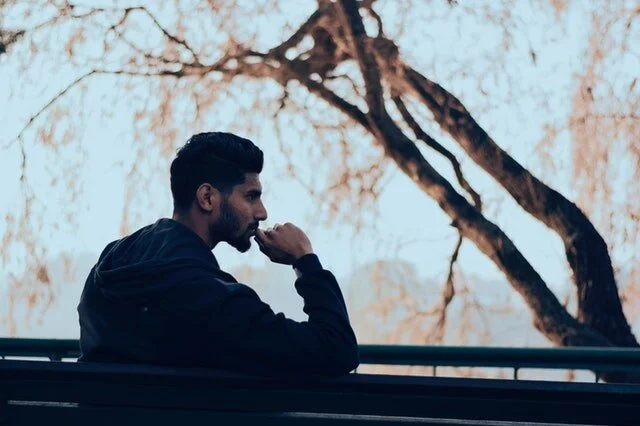Have you ever asked yourself the question before, “Why is mental health important?” I have, and this is a topic that western society seems to be discussing and exploring more, due to the ramifications of depression, suicide, and other mental hurdles that many are experiencing.
With the help of social media, I have seen more and more pockets in the interwebs where people are reaching out for help and doing their best to survive in the darkness. It could be a Facebook group or a sub-Reddit but I have observed many outcries for help.
To expose part of my motivation on why I am writing this article, I feel it is time for a recent story about my life.
In March of this year(2019) I moved back to the U.S. from Eastern Europe after living abroad a few days short of a year. I had come back to my homeland after some hard relational issues and I was trying to create stability after a struggle of a year with the consulting business I had built.
After being back for three weeks I decided to go for a chill ride on my longboard so I could get some groceries. Well, as I was coming down a slight hill I decided to carve into a parking lot and apparently as I was doing this basic turn I crashed hard. I don’t honestly know or remember how I fell, but what I do recall is mentally awakening in a hospital days later and knowing this was not my desire when getting on my board that day.
Apparently, I fractured my skull, had my first encounter with a traumatic brain injury, and being flown by helicopter to another city hours away to be at a hospital with neurologists. I was devastated and angry when I started to feel the impact of the situation. I had already been struggling with the culture shock of coming back to the States and deeply missing my ex whom I had just left back in Eastern Europe. Now, on top of that, I had gone in the exact opposite direction of where I wanted to head.
I was immobilized and entirely dependent on my friends and family. I have never been faced with such a big slice of humble pie in my life. I couldn't work, think or even take care of myself. I was faced with one of the scariest moments in my life.
Fortunately, I have amazing friends and family who instantly swooped in and took care of me. I have never felt so grateful and safe. Even though everything seemed to be falling apart I was in a place where others were protecting and supporting me.
So what does this have to do with mental health? Well, as I started to heal I began to experience a crippling amount of self-hatred, anger, and mental instability. I was wrestling with fear, depression, and anger in ways I did not think possible. You see, with the head injury my internal emotional experience was magnified and unregulated many times. It was a dark hurricane within and I often felt overwhelmed and helpless.
The thing is though, as I was healing I started to rely upon some of the tools I had learned in my own personal journey of pursuing mental health. For years this has been a focus in my life that I have tried to be intentional to develop and grow in.
A gadget I used for my mental health that may seem simple to some was journaling. It was huge for me early on, it was a way for me to openly express everything I was thinking and feeling, but also it was a way for me to gauge where my mental stability was at. With the concussion and brain damage, there were certain parts of my behavior that were magnified and impacted. For example my emotions, impulsiveness, obsessiveness, and being irrational. I not only have had to pursue healing but also processing and recognizing my reality and journaling helped with this extensively.
Another tool I leaned on was my close group of friends and family that I trust. What does this look like? Me reaching out to process or talk about the current mental hurdles or blockages I was experiencing. This has helped and continues to help me stabilize in this difficult time in my life.
I guess, why I bring this part of my life up is I am certain that my awareness and desire to grow in mental health previously has played a major role in me getting through this very intense time in my life. In no way do I think I have arrived, I still have a long path of healing ahead of me. I just wanted to share with others what I have found so deeply valuable in this hard time. Also, there are other methods of things to do in hard times but I figured the two examples I shared would be a good start.
So, before we go any further on this topic, I think it is necessary to define what mental health is.
Here is the definition of mental health by Merriam-Webster.
the condition of being sound mentally and emotionally that is characterized by the absence of mental illness and by adequate adjustment especially as reflected in feeling comfortable about oneself, positive feelings about others, and the ability to meet the demands of daily life
also : the general condition of one's mental and emotional state
health care dealing with the promotion and improvement of mental health and the treatment of mental illness —often used before another noun
Here is what wordnetweb.princeton.edu has to say.
(n) mental health (the psychological state of someone who is functioning at a satisfactory level of emotional and behavioral adjustment)
If you want check out Wikipedia’s page on this topic for a general start, here is one excerpt from it that I find relevant to this discussion.
According to the World Health Organization (WHO), mental health includes "subjective well-being, perceived self-efficacy, autonomy, competence, inter-generational dependence, and self-actualization of one's intellectual and emotional potential, among others." The WHO further states that the well-being of an individual is encompassed in the realization of their abilities, coping with normal stresses of life, productive work and contribution to their community.Cultural differences, subjective assessments, and competing professional theories all affect how one defines "mental health".
The last thing I want to prompt you to think about before we further this discussion on mental health are a few questions that I feel are relevant and helpful in getting the ball rolling.
What is your defenition of mental health?
How often do you think about your own mental health?
In your surroundings is it taboo for men to seek out mental health?
Do you know how to take care of your own mental health?
Now, let’s circle back around to the original question and foundation of this little article. Why is mental health important?
For me, the importance of mental health has only been amplified with the recent occurrence I spoke about earlier in my life. I cannot fathom how I would feel or exist within my own skin currently if I had not learned the importance of taking care of my mental health. Enough about me though. Here is a info-graph that is a decent place to start the thoughts on the importance of mental health.
Here are some bullet points in text form for those who don’t like pictures. Also, here is a link to the source NAMI.
Approximately 1 in 5 adults in the U.S. (46.6 million) experiences mental illness in a given year.
Approximately 1 in 25 adults in the U.S. (11.2 million) experiences a serious mental illness in a given year that substantially interferes with or limits one or more major life activities.
Approximately 1 in 5 youth aged 13–18 (21.4%) experiences a severe mental disorder at some point during their life. For children aged 8–15, the estimate is 13%.
1.1% of adults in the U.S. live with schizophrenia.
2.6% of adults in the U.S. live with bipolar disorder.
6.9% of adults in the U.S.—16 million—had at least one major depressive episode in the past year.
18.1% of adults in the U.S. experienced an anxiety disorder such as posttraumatic stress disorder, obsessive-compulsive disorder and specific phobias.
Among the 20.2 million adults in the U.S. who experienced a substance use disorder, 50.5%—10.2 million adults—had a co-occurring mental illness.
Does any of this surprise you? Mental health issues take many forms and the ones listed may seem like they don’t relate to you, yet, mental health issues come in so many varieties and intensities. That is why a basic education or understanding of this topic I believe is so essential.
Over at Mentalhealth.gov they talk about a few myths in regards to mental health. Here are a few that I found most relevant.
Myth: Prevention doesn't work. It is impossible to prevent mental illnesses.
Fact: Prevention of mental, emotional, and behavioral disorders focuses on addressing known risk factors such as exposure to trauma that can affect the chances that children, youth, and young adults will develop mental health problems. Promoting the social-emotional well-being of children and youth leads to:
Higher overall productivity
Better educational outcomes
Lower crime rates
Stronger economies
Lower health care costs
Improved quality of life
Increased lifespan
Improved family life
Myth: Children don't experience mental health problems.
Fact: Even very young children may show early warning signs of mental health concerns. These mental health problems are often clinically diagnosable, and can be a product of the interaction of biological, psychological, and social factors.
Half of all mental health disorders show first signs before a person turns 14 years old, and three quarters of mental health disorders begin before age 24.
Unfortunately, less than 20% of children and adolescents with diagnosable mental health problems receive the treatment they need. Early mental health support can help a child before problems interfere with other developmental needs.
Myth: People with mental health problems are violent and unpredictable.
Fact: The vast majority of people with mental health problems are no more likely to be violent than anyone else. Most people with mental illness are not violent and only 3%–5% of violent acts can be attributed to individuals living with a serious mental illness. In fact, people with severe mental illnesses are over 10 times more likely to be victims of violent crime than the general population. You probably know someone with a mental health problem and don't even realize it, because many people with mental health problems are highly active and productive members of our communities.
Conclusion
I hope that through this simple article I have started to pique your interest and intellect in regards to mental health. It is a topic that should be discussed more in my opinion.
I hope that in the years to come that men are able to navigate and overcome this hurdle in life. I mean I hope that as well for women but my personal focus is to try and help men.
To end I think it would be best to list a few things you can do to help yourself mature and grow in this arena. Most of these I have done myself and that is why I am suggesting it.
Seek out some professional help. Try out a therapist or psychologist. This should help you discover things about yourself and hopefully confront some predominant issues at hand.
Talk with someone you look up to about the current struggles you are going through.
Do some reading on this issue.
Check out some videos online that talk about mental health.
I think those are all good starting points that will help you on this journey.
Thanks for taking the time to read this article and feel free to share your thoughts or questions in the comment section below.
Cheers,
Timothy















